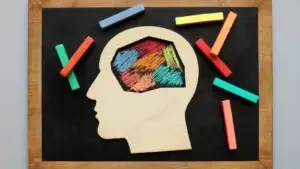In recent years, social media has become an integral part of our lives. It’s a great way to stay connected with friends and family, especially if you live far away. But there’s a downside to all this constant connection. Read more to find out about the dark side of social media and how it impacts it mentally and emotionally.
When investigating the role of social media on mental health, studies have shown that too much social media can actually be harmful to our mental health, leading to increased anxiety and loneliness.
For instance, the Canadian Medical Association Journal writes,
“In the last decade, increasing mental distress and treatment for mental health conditions among youth in North America has paralleled a steep rise in the use of smartphones and social media by children and adolescents.”
Here’s a closer look at the dark side of social media and how it’s impacting our mental health.
Anxiety and Social Media
One of the biggest ways social media is harming our mental health is by causing anxiety. Constant scrolling through Facebook, Instagram, etc. can make us feel like we’re not doing enough with our lives or that we’re not as successful as our friends or peers. This can lead to feelings of inadequacy and anxiety. Social media can also cause us to compare ourselves to others, which can further increase our anxiety levels.
Loneliness and Social Media
Another way the dark side of social media is harming our mental health is by making us feel lonely. Even though we’re constantly connected to others online, we might actually feel more alone than ever before. This is because we’re spending less time interacting with people in person and more time looking at pictures and posts online. We might even start comparing our real life to the “perfect” lives we see on social media, which can further increase feelings of loneliness and isolation. If you find yourself feeling lonely, try reaching out to a friend or family member offline instead of relying on social media for companionship.
Sleep Deprivation and Social Media
Social media has been linked to sleep deprivation, as users find themselves checking their devices late at night or becoming overwhelmed by the constant flow of information. This can lead to fatigue, irritability, and difficulty concentrating. If you find yourself struggling to sleep, try disconnecting from social media an hour or two before bedtime and establish a bedtime routine that doesn’t involve your phone or computer.
Depression and Social Media
Finally, social media has been linked to depression. This is likely due to a combination of factors indicated above, including anxiety, loneliness, and sleep deprivation.
Spending time on social media also means we typically are less physically active and more sedentary, also contributing to depressed feelings and fatigue.
According to research published in the journal Epidemiologia:
“While social media can create a sense of community for the user, excessive and increased use of social media, particularly among those who are vulnerable, is correlated with depression and other mental health disorders.”
If you find yourself feeling down or hopeless, it’s important to reach out to a professional for help. Your therapist can help you find ways to reduce social media reliance.
How to Limit Social Media Use
If you’re worried about the dark side of social media and the impact it’s having on your mental health, there are steps you can take to limit your use.
-
-
- Try setting aside specific times for checking social media each day, and stick to those times. Once you’re done, close the app or website and focus on something else. You can also try using an app that will track your social media use and help you to cut back.
-
-
-
- Another way to limit your social media use is to be intentional about who you follow. Only follow people and pages that you actually want to see updates from. This will help to minimize the amount of time you spend mindlessly scrolling. You can also try unfollowing or hiding people and pages that make you feel bad about yourself.
-
-
-
- If you find yourself feeling anxious after using social media, take a break for a few days to see how you feel. You might be surprised at how much better you feel without it.
-
-
-
- If you find yourself getting lonely, try spending time with people offline instead
-
While social media has its benefits, it’s important to be aware of the ways it can impact our mental health negatively. Just remember that social media isn’t real life and that the pictures and posts you see only show one side of the story. Social media is meant to be a fun way to stay connected with others. If it’s causing you more stress than enjoyment, it might be time to take a break and take steps to protect your mental health.
While social media can be harmful to our mental health, there are also ways we can use it in a positive way:
-
- Follow accounts that make you feel good
-
- Reach out to friends and family online
-
- Use social media as a way to connect with others, not as a way to compare yourself.
Some experts believe social media seriously harms your mental health, but with a little effort, we can all make social media work for us instead of against us.
Begin Working With A New Bern Therapist
Decreasing social media usage or recognizing if it’s having a negative impact on you is much easier said than done, which is why our team of caring therapists is here to help. We are happy to offer support from our mental health New Bern, NC-based practice with online services available across the state. You can start your therapy journey with Renewed Wellness Counseling by following these simple steps:
-
- Meet with a caring therapist
-
- Start experiencing more confidence and positive thoughts!
Other Therapy Services Offered With Renewed Wellness Counseling
Our team understands that you may have more than one mental health concern which is why we are happy to offer multiple mental health services. Our therapists specialize in therapy for military families, chronic illness counseling, stress and anxiety counseling, and addiction counseling. We also offer life transition counseling and trauma therapy. Let’s work together to get you to a good place!








